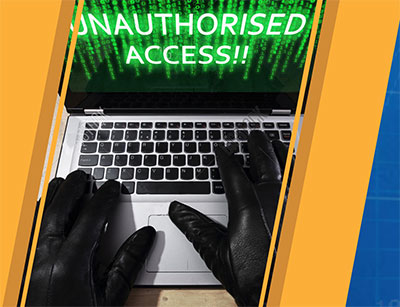Financial fraud and e-crime awareness training
Peace and Security Studies

Course Fee:
Terms and Conditions:
Admission to the Certificate Programme requires a minimum of a tertiary degree or diploma from relevant academic or professional institutions. Practitioners with experience without a formal academic qualification may also apply.
Financial fraud and e-crime awareness training
(Practical Based Training)
Course Overview
Digital devices (computers and networks) have become an integral part of today’s generation and have become very personal. These devices are used for all sort of things such as texting, emailing , shopping, banking , managing businesses, travelling, studying among others. The more personal these devices become the more cyber attackers developed diverse means to target and compromised them.
Data networks, digital applications, as well as internet and mobile users are rising, so do the risks of cyber exploitation, abuse, threats and crimes. Even a small lapse in securing data or bad social networking can prove to be extremely dangerous. If accounts are not properly secured, it makes easier for hackers or unauthorized users to spread viruses or social engineer attacks designed to steal data and even money. The upsurge in Mobile Money and other Remittance Fraud Schemes as well as counterfeiting and impersonations pose major threats to the Digitalisation Agenda. Such issues highlight the need for awareness as an essential approach in protecting and preventing financial fraud and cyberattacks.
Course Objectives
The main objectives for the training programme include:
- To create awareness on existing and emerging cyber security threats and attacks;
- To equip participants with the skills to identify cyber security threats and incidents;
- To provide participants with practical methods on how to detect and counter phishing attacks, data leakage/compromise schemes, social engineering schemes, email attacks, among others;
- To expose participants to emerging and existing financial fraud schemes;
- To provide participants with current trends to gain understanding of the modus operandi of the fraudsters (external perpetrators and insiders) to perpetrate fraud through case studies and demonstrations;
- To equip participants with critical skills to identify and report suspicious documents and identity fraud.
Thematic Areas
Thematic areas to be covered during the session include:
Financial Fraud
- Overview of financial fraud and trends
- Forgery & Documents Counterfeiting Techniques being used by fraudsters
- Currency Counterfeiting & Detection Techniques
- Identity Documents (ID) Counterfeiting & Prevention/Detective Measures
- Insider Fraud trends & Detective measures
- Impersonations & Imposter Detection Techniques
- E-Payment Cards Fraud (ATM, VISA, etc) Fraud Trends & Countermeasures
- Remittance Fraud Schemes and Countermeasures
- SMS/Mobile Banking and Prevention/Detection measures
- Mobile Money Fraud
E-crime Awareness
- Overview of cybercrime trends targeting institutions
- Recent cases of cyber-attacks
- Information and Data Security Best practices
- Insider Attacks & Countermeasures
- Email Attacks and Preventive Measures
- Password Security & Best Practices
- Mobile Threats and Security Measures
- Cyber Security Solutions and Countermeasures
Course Schedule
Date
February 20 – 21, 2020.
Venue
Kofi Annan International Peacekeeping Training Centre, Teshie – Accra.
Entry Requirements
Admission to the Certificate Programme requires a minimum of a tertiary degree or diploma from relevant academic or professional institutions. Practitioners with experience without a formal academic qualification may also apply.
How to Apply
Visit the following website to apply online or download the Application Forms by clicking on the “How to Apply” button.
Website:
www.e-crimebureau.com
For further details about the course, contact the registry on
Tel.: 0501551127 / 0501304836
Email: training@e-crimebureau.com/ judith@ecrime-bureau.com


